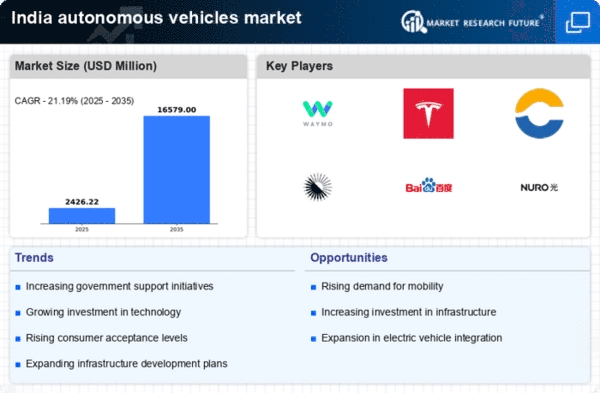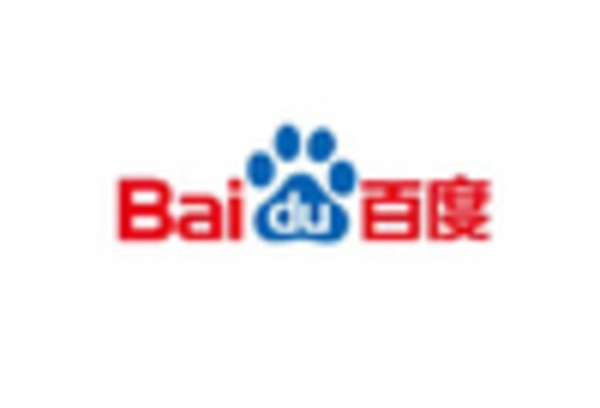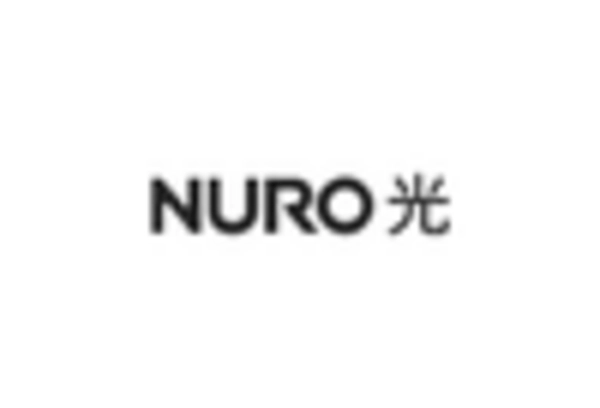Investment in Infrastructure
Investment in infrastructure is a significant driver for the autonomous vehicles market in India. The government and private sector are increasingly recognizing the need for advanced road networks, smart traffic management systems, and charging stations to support the deployment of autonomous vehicles. As of 2025, it is estimated that the Indian government plans to allocate approximately $10 billion towards enhancing urban infrastructure, which includes smart city initiatives that integrate autonomous vehicle technology. This investment is expected to create a more favorable environment for the adoption of autonomous vehicles, as improved infrastructure can lead to safer and more efficient transportation systems. Additionally, the development of dedicated lanes for autonomous vehicles could further streamline their integration into existing traffic systems, thereby enhancing the overall efficiency of urban mobility.
Regulatory Framework Development
Establishing a robust regulatory framework is crucial for the growth of the autonomous vehicles market in India. The government is actively working on policies that address safety, liability, and operational guidelines for autonomous vehicles. This regulatory clarity is expected to foster innovation and investment in the sector. As of 2025, the Indian government has proposed several initiatives aimed at creating a conducive environment for autonomous vehicle testing and deployment. This includes the formulation of standards for vehicle performance and safety, which could potentially enhance public trust in autonomous technology. Furthermore, the regulatory framework may also facilitate partnerships between public and private sectors, thereby accelerating the development of infrastructure necessary for autonomous vehicles. Such developments are likely to play a pivotal role in shaping the future landscape of the autonomous vehicles market.
Rising Demand for Mobility Solutions
The increasing demand for innovative mobility solutions is driving the autonomous vehicles market in India. Urbanization and population growth have led to congestion and pollution in major cities, prompting a shift towards more efficient transportation options. As of 2025, it is projected that the demand for shared mobility services will rise by 30%, creating opportunities for autonomous vehicles to provide cost-effective and sustainable transport solutions. This trend is particularly evident in metropolitan areas where traditional public transport systems are struggling to meet the needs of the population. The autonomous vehicles market is likely to benefit from this shift, as consumers seek alternatives that offer convenience and reduced travel times. Moreover, the integration of autonomous vehicles into ride-sharing platforms could further enhance their appeal, making them a viable option for urban commuters.
Environmental Sustainability Initiatives
Environmental sustainability initiatives are increasingly influencing the autonomous vehicles market in India. The government is prioritizing green technologies to combat pollution and reduce carbon emissions, which aligns with the objectives of the autonomous vehicles market. As of 2025, it is anticipated that the adoption of electric and hybrid autonomous vehicles will rise significantly, driven by government incentives and consumer awareness regarding environmental issues. This shift towards sustainable transportation solutions is expected to create a favorable market environment for autonomous vehicles, as they are often designed to be more energy-efficient than traditional vehicles. Furthermore, the integration of renewable energy sources into the charging infrastructure for autonomous vehicles could further enhance their sustainability profile, making them an attractive option for environmentally conscious consumers.
Technological Innovations in AI and Robotics
Technological innovations in artificial intelligence (AI) and robotics are pivotal to the advancement of the autonomous vehicles market in India. The rapid evolution of AI algorithms and sensor technologies is enhancing the capabilities of autonomous vehicles, making them safer and more efficient. As of 2025, it is estimated that investments in AI and robotics for the automotive sector will exceed $5 billion, indicating a strong commitment to research and development. These innovations are not only improving vehicle navigation and obstacle detection but are also enabling real-time data processing, which is essential for autonomous operations. The continuous improvement in these technologies is likely to attract more players into the autonomous vehicles market, fostering competition and driving further advancements in vehicle capabilities.
















